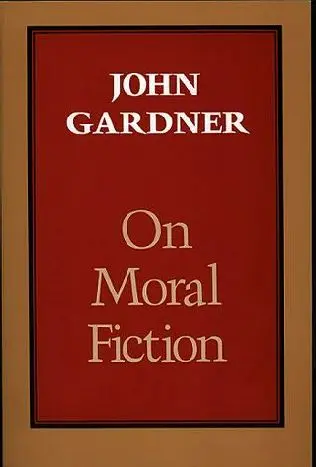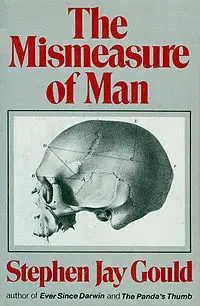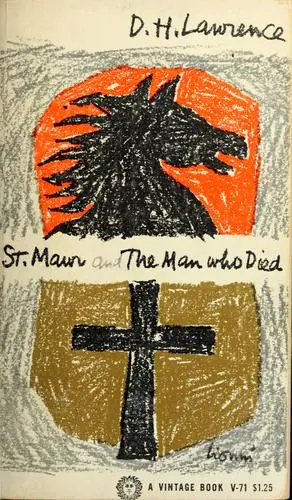Original photo via Free Images
Every month I'm going to talk about obscure books. Neglected books. Novels not enough people have read, for instance, or books that were once popular but have fallen out of critical favor. I'm not going to pretend to be objective here; the point is to get a dialogue going about books we just don't talk about anymore.
!['On Moral Fiction' by John Gardner]() "On Moral Fiction" by John Gardner
"On Moral Fiction" by John Gardner
I wrote my MA thesis on this book—I know how hard it is to be taken seriously when you want to discuss it. It was published at the close of the 1970s; it caused a storm, ruined John Gardner's career, and was promptly forgotten.
The first thing to be said about On Moral Fiction is that it's not a comfortable read. Attentive readers will be astonished at the carelessness that went into writing this book; those who have read the masterpieces of creative writing pedagogy that Gardner is best remembered for now (The Art of Fiction and On Becoming a Novelist) will not find the same John Gardner here. In this little book, Gardner is not subtle. He attacks other authors left and right. He makes sweeping claims and never quite manages to give them substance. He has a message (that art should always be seen as moral, and that fiction in particular should raise the kind of questions that will allow us to live in moral ways) but that message is often hidden under a layer of clumsy polemicism and indignation. In short, this is a manifesto that continually sabotages itself.
So why read it? Well, you don't have to, and nobody would blame you if you never picked it up. If you don't care about the moral dimensions of fiction, then this book probably won't convince you that you should care. But if the question of what fiction should be doing is one that matters to you, then read this. It's not quite out of print, not quite "impossible" to find, but it's definitely not a fashionable read. That's partly the point. Gardner placed himself in opposition to the post-structuralism, the post-modernism, and the general cynicism of his time. He wanted us to think about the effect of reading a good novel. Why should we give a damn if a book deals with moral issues? And what does it even mean for a bunch of words to be "moral"? Gardner's answer is frustrating, but it's also weirdly convincing—at least superficially. Don't look too hard into the philosophical foundations of his argument, because you'll find a mess of inconsistencies. But you'll also get a lesson in how to fight for your beliefs. Gardner died shortly after On Moral Fiction became a really hot topic. He died unpopular and filled with insecurities about the book that had ruined him; I'm not convinced he ever admitted to himself that he's shot himself in the foot quite as seriously as we know he did. But the man who taught other great authors, notably Raymond Carver, how to be the writers they were: that man deserves our respect.
Get On Moral Fiction at Bookshop or Amazon
![]() "The Mismeasure of Man" by Stephen Jay Gould
"The Mismeasure of Man" by Stephen Jay Gould
Yes, everyone knows about Stephen Jay Gould; but I think it's important to place The Mismeasure of Man on this list because, simply, it shatters one of the most pernicious, stupid and widespread myths we live by. That is the myth of biological determinism, or the belief that "shared behavioral norms, and the social and economic differences between human groups—primarily races, classes and sexes—arise from inherited, inborn distinctions and that society, in this sense, is an accurate reflection of biology."
The thing we call Intelligence turns out not to be any one single thing, but a cluster of attributes and processes that can't be measured by a standardized test—right? Right, except we make the mistake of treating intelligence as a real, quantifiable thing. All the time. The problems with doing this are huge and their manifestations are everywhere. Such unfortunate bestselling turkeys as The Bell Curve are preemptively discredited in The Mismeasure of Man. Gould shows how easy it is to fall prey to all the alluring fallacies of biological determinism, and, in my case, alerts me of my own dangerous prejudices. The measure of IQ is an absurdity, but how many of us can explain why it's absurd as eloquently as we'd like? Gould's book gives all the arguments against biological determinism that you need to humiliate someone at a party.
Get The Mismeasure of Man at Bookshop or Amazon
![]() "The Man Who Died" by DH Lawrence
"The Man Who Died" by DH Lawrence
As a disclaimer: There are many, many reasons this short novel is neglected, and many of them are perfectly valid. It is a dubious piece of literature. DH Lawrence was prolific, but he wasn't consistently good, and this is one of the worst novels you will ever read by a classic author.
I recommend The Man Who Died, not on account of its literary worth, which is close to nil, but because of what it represents. It's a great example of a really, really, bad text by an author we generally recognize as important. It's humbling and emboldening at the same time.
Reading The Man Who Died, which deals with the resurrection of Christ and his "real" resurrection (a sexual awakening, basically), you may very well end up, as I did, thinking hard about the idea of the canon. Superficially, it seems that some authors are canonical and some are not. Some authors are eternal, some are only temporarily accepted as great, and some are forever relegated to the sub-literary class: the dross of shit-lit. But where does The Man Who Died fit in? Lawrence, after all, may not be considered the greatest English prose writer, but he did pen Lady Chatterley's Lover and Sons and Lovers. His reputation rises and falls, but he's certainly going to be remembered.
So you read a "minor" work like The Man Who Died and you can't help but wonder how it happened. Anyone can write a bad book, but it takes guts and self-delusion to write an absolutely terrible book. How can the man who wrote Lady Chatterley have managed to write a sex scene in this style:
[Jesus] crouched to her, and he felt the blaze of his manhood and his power rise up in his loins, magnificent.
'I am risen!"
To be clear: Jesus gets a hard-on, and the pun is that he is "risen!" That's it. That's the climax (damn, another pun) of the novel. It is the most memorably awful thing you will ever read, if you're lucky.
And that's why it's worth reading. Because, in all likelihood, that manuscript you've been toiling over for a year is already better than something written by DH Lawrence.
Get The Man Who Died at Bookshop or Amazon
There's a reason you should read books that others seem to have forgotten about. Quite often, those books are worth your attention in their own right; but they're also likely to have influenced the authors you love.
Nobody reads Édouard Dujardin nowadays, but James Joyce did—and one result of that encounter was Ulysses. And nobody reads Theodore Dreiser anymore, but he helped to spawn a whole generation of naturalistic writing in America. How many casual critics of Freud have read Freud these days? How many people have even read the New Testament—those texts that have shaped us all more than we're willing to accept?
My goal with this series isn't going to be indoctrination. I will, however, push people to read books that help to understand how we got here. Sometimes they're works of genius. Sometimes they aren't very good by today's commonsense standards. Oh well!

About the author
Phil Jourdan is a writer, musician and distinctly unenlightened person. He is structural editor at Angry Robot, and a co-founder of Repeater Books and Litreactor. He splits his time between the UK and Argentina.
 "On Moral Fiction" by John Gardner
"On Moral Fiction" by John Gardner
 "The Mismeasure of Man" by Stephen Jay Gould
"The Mismeasure of Man" by Stephen Jay Gould
 "The Man Who Died" by DH Lawrence
"The Man Who Died" by DH Lawrence







